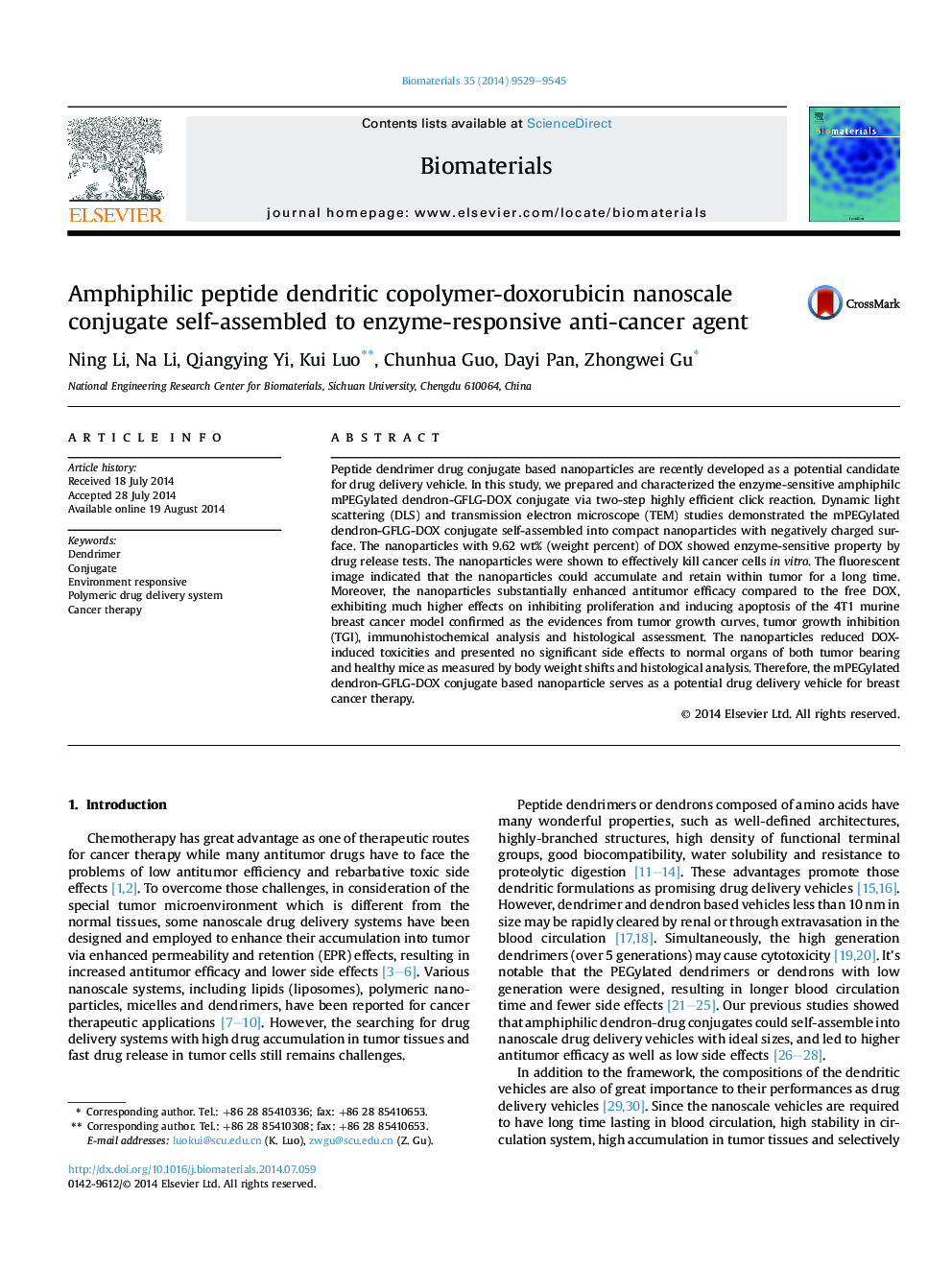| Article ID | Journal | Published Year | Pages | File Type |
|---|---|---|---|---|
| 10227282 | Biomaterials | 2014 | 17 Pages |
Abstract
Peptide dendrimer drug conjugate based nanoparticles are recently developed as a potential candidate for drug delivery vehicle. In this study, we prepared and characterized the enzyme-sensitive amphiphilc mPEGylated dendron-GFLG-DOX conjugate via two-step highly efficient click reaction. Dynamic light scattering (DLS) and transmission electron microscope (TEM) studies demonstrated the mPEGylated dendron-GFLG-DOX conjugate self-assembled into compact nanoparticles with negatively charged surface. The nanoparticles with 9.62 wt% (weight percent) of DOX showed enzyme-sensitive property by drug release tests. The nanoparticles were shown to effectively kill cancer cells in vitro. The fluorescent image indicated that the nanoparticles could accumulate and retain within tumor for a long time. Moreover, the nanoparticles substantially enhanced antitumor efficacy compared to the free DOX, exhibiting much higher effects on inhibiting proliferation and inducing apoptosis of the 4T1 murine breast cancer model confirmed as the evidences from tumor growth curves, tumor growth inhibition (TGI), immunohistochemical analysis and histological assessment. The nanoparticles reduced DOX-induced toxicities and presented no significant side effects to normal organs of both tumor bearing and healthy mice as measured by body weight shifts and histological analysis. Therefore, the mPEGylated dendron-GFLG-DOX conjugate based nanoparticle serves as a potential drug delivery vehicle for breast cancer therapy.
Related Topics
Physical Sciences and Engineering
Chemical Engineering
Bioengineering
Authors
Ning Li, Na Li, Qiangying Yi, Kui Luo, Chunhua Guo, Dayi Pan, Zhongwei Gu,
